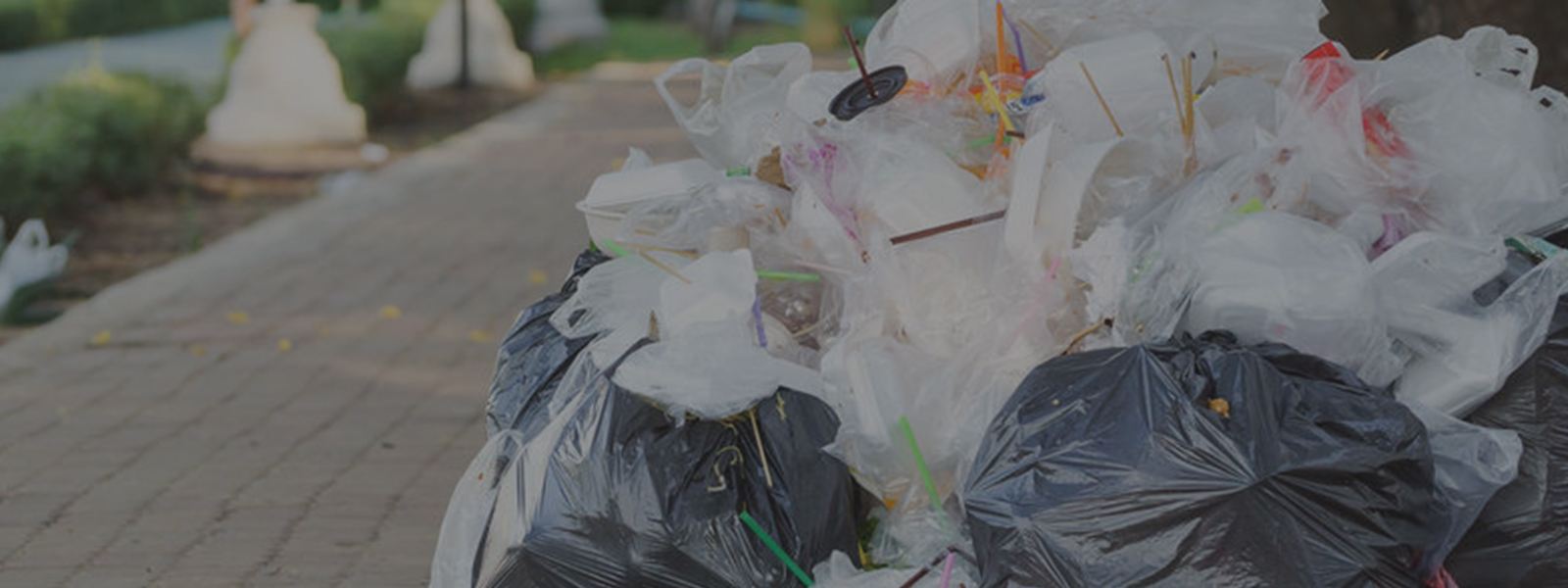3-Day Certified Sustainable Integrated Waste Management Short Course
When: 5-7 November 2019
Where: Online live. The training is carried out through a virtual classroom
Course Fee: $315
What will you learn
During the 3-day online course you will learn the most advanced tools, techniques and best practices of how to manage solid waste. The course includes topics on assessment of situations, finding solutions, creating and delivering sustainable waste management projects.
Key skills you will learn through lectures, class-discussions, exercises and case studies, include how to:
- Assess local conditions and needs
- Identify waste problems
- Know which solutions to choose to solve identified waste problems
- Understand the most important elements of integrated sustainable waste management
- Understand the main phases of a solid waste system and the actors involved
- Understand the main drivers steering solid waste policy development
- Design and carry out your own training of trainers: this training will cover the basics of how to deliver waste management training to other trainers or community members
Requirements
- No prior knowledge of waste management is needed
- Good internet connection
Description
This 3-day live online course is taught by an experienced waste management expert with 25 years of worldwide experience. During the course the expert will demonstrate real-life examples and case studies.
The training introduces you to the fundamentals of solid waste management, focusing on the best practices to reduce, reuse, recycle and manage waste to mitigate climate change, pollution and reduce volumes of waste. The course will cover all the main elements of reduction, collection, composting, recycling and waste disposal.
At the end of the training you will receive a certificate of training completion.
By applying the acquired knowledge and provided tools to your local contexts you will be able to assess and understand how and why waste management systems often fail and what steps can be undertaken to make them more efficient and sustainable. In addition, throughout this training you will get fundamental guidelines on preparing and delivering successful training tailored to the needs of your future audience.
Who is this course for?
- Environmental consultants interested in waste management solutions
- Professionals who work in the waste sector and on waste projects
- Urban planners form municipalities, councils and other government organisations interested in waste management solutions
- NGOs, civil society, community-based organisations focused on waste problems
- Programme and project managers, administrators, coordinators and other professionals who work on waste-related or community-based projects
- Those who work or wish to get involved in addressing the growing waste challenge
Course Content
This accelerated training combines online learning with an intensive online group workshop, facilitated through an online classroom. You will receive the link to the classroom with all the necessary materials.
Information on each topic is provided, together with a range of activities designed to support the learning where you will be able to LEARN BY DOING through asking questions, participating in discussions, practical exercises and listening to the trainer’s instructions and best case practices.
Click here to view Agenda.
Trainer
Jeroen IJgosse is an urban planner, urban environmental specialist and planning process facilitator, with 25 years of professional activity in waste management and sustainable sanitation in Latin America, Asia, Africa and Europe. He holds a MSc International Development Technology Sciences; Urban Planning for Developing Economies, from the University of Technology of Eindhoven, Eindhoven, The Netherlands.
During his professional career, he has worked within the international development sector, and has spent 20 years working and living permanently in 5 Latin American countries (incl. Brazil, Peru and Costa Rica), through long term assignments in countries including India, Egypt, Nicaragua, Belize and Colombia, and short-term assignments including Mozambique, Nepal, El Salvador, Surinam.
He has worked with a broad range of stakeholders at national and international level, on waste related projects funded by EU, Worldbank, IADB, KfW, GiZ, DGIS, US-AID, DFID, UN-Habitat and other international donors.
He has been involved in the development of various (participatory) planning processes to prepare solid waste management plans and national waste management strategies for different waste fractions.
His substantive areas of specialisation include: waste policy development and strategic planning; institutional, legal and financial waste management issues; institutional capacity building; financing mechanisms and tariff setting systems; formal and informal sector waste management (including collection; transfer; recycling; composting; sanitary land filling); contracting and franchising; environmental service models; community partnerships; environmental management systems; gender analysis; good governance/private sector participation issues for local authorities; and civil society/MSE strengthening; extended producer responsibility issues; specific waste fractions strategies in particular electronic and electric waste (WEEE).
He has been a guest lecturer at the UNESCO-IHE, Institute for Water Education, Delft, the Technology Development Group of the University of Twente, The Wageningen University of Agriculture (all in the Netherlands) and UNIFOR in Brazil, to (amongst others) alumni from Indonesia, China, Thailand, India, Philippines and Brazil.
He has given trainings and facilitated participatory planning process coaching, in English, Spanish, Portuguese and Dutch, directly with target stakeholders and also in trainer-to-trainer, to municipal officers, NGO and CBO staff, community leaders, ministerial staff, and representatives from the (in) formal private sector. He has organised and conducted study tours for national working groups on WEEE and organised the First WEEE seminar for in Ceara, Brazil.
Mr. IJgosse is committed to facilitating multi-stakeholder participation at all levels in policy formation, modernization and improvement of urban services, urban upgrading and environmental management, striving for the enhancement of the holistic and analytical assessment skills of those (in) formal stakeholders involved.
He is currently operating from The Hague, The Netherlands as an international independent consultant in (solid) waste management, sustainable sanitation and urban environmental issues, trainer and facilitator.
Register for the training
- Up to 15 places are available
- The fee is $315 and is delivered live online through a virtual classroom
- As soon as you have registered, you will receive a pre-training questionnaire
- You will receive a link to the virtual classroom to which you will be able to log into on the training day
- Prior to the start date of the training, you will also receive handouts, resources and other material that you will need
Limited spaces are available for our virtual training. Book now or register below to be notified of the next available date.


